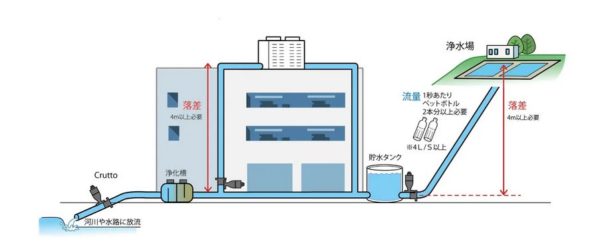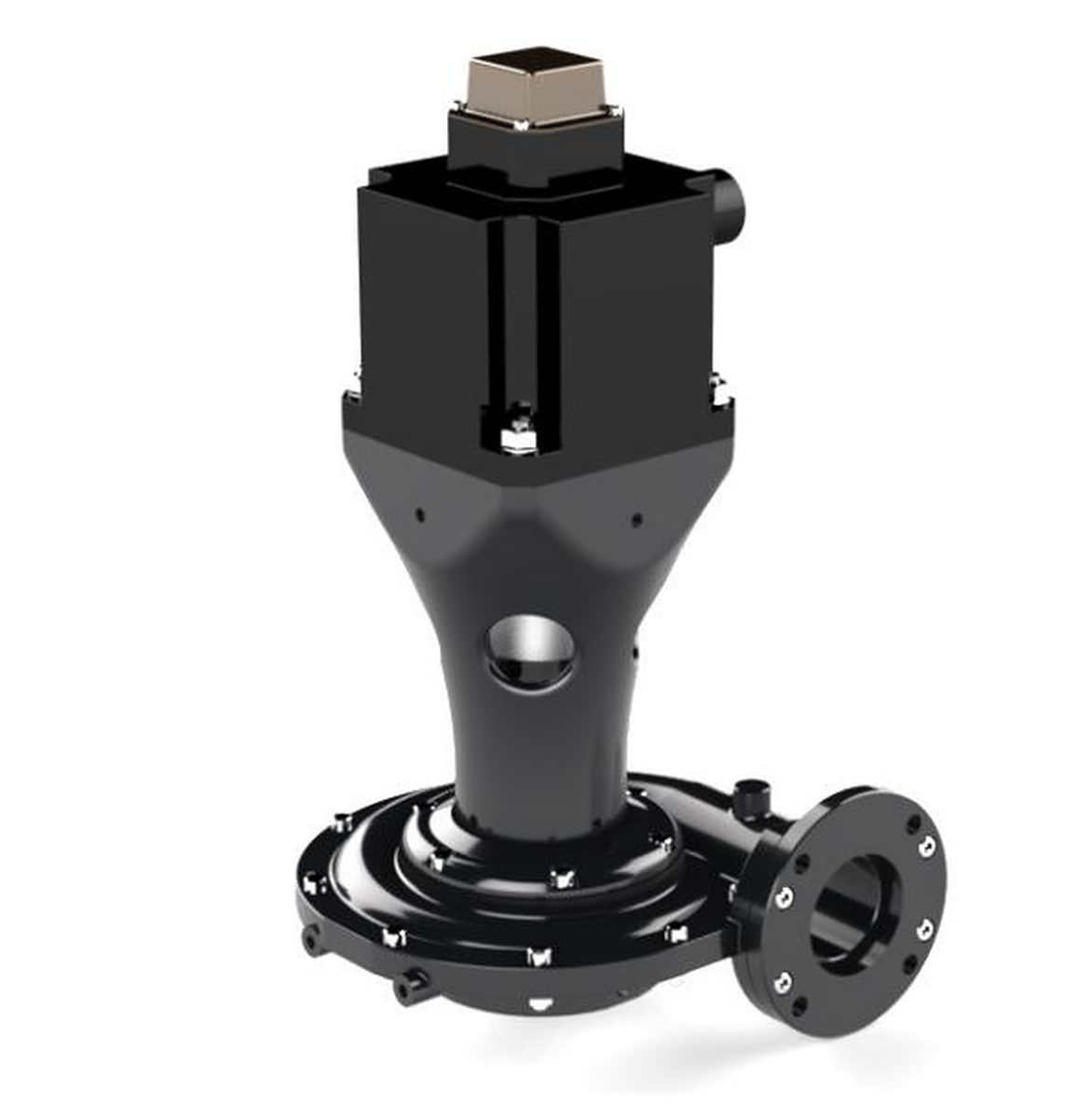Japanese startup Yumes Frontier has developed a micro-hydroelectric power generation system that uses small amounts of water in factories, buildings, and water purification plants.
“Our system was conceived to utilize unused water pipes and is aimed at reducing electricity bills in commercial and industrial buildings,” a company spokesperson told pv magazine. “The system can be used in different kinds of commercial and industrial buildings, provided a few conditions are met. For example, a minimum flow rate of 4L/s and a water drop from a height of more than 4 meters. And if these conditions are met, it may even be installed in residential buildings or houses.
The device measures 580 mm x 330 mm and weighs 30 kg, with a nominal power of 2.7 kW. It uses the difference in water pressure in the piping to generate power and can work only with sealed piping. The water wheel rotation speed ranges from 450 to 5,000 rpm and the rotation speed, at a head of 24 meters, spans 5,000 rpm when unrestrained to 2,800 rpm when outputting 2.5 kW.

Image: Yumes Frontier
“The system can also be used in combination with solar,” the spokesperson explained. “It is also possible to use solar power during the day and hydropower at night. Both can be operated, and by storing the generated electricity in a storage battery, you can use it at any time you like.”
Popular content
The system can provide power for outdoor and office lighting, as well as for surveillance cameras. The company sells the standard model at a price of JPY 980,000 ($7,080). Payback times have been estimated between eight and nine years, while the expected lifecycle is 20 years.
“The only replacement parts are mechanical seals and bearings, but it may be necessary to replace them once every 20 years or not,” the spokesperson said. “As for the warranty, it is currently only available in Japan for one year. For overseas sales, only initial defects will be exchanged.”
This content is protected by copyright and may not be reused. If you want to cooperate with us and would like to reuse some of our content, please contact: editors@pv-magazine.com.



By submitting this form you agree to pv magazine using your data for the purposes of publishing your comment.
Your personal data will only be disclosed or otherwise transmitted to third parties for the purposes of spam filtering or if this is necessary for technical maintenance of the website. Any other transfer to third parties will not take place unless this is justified on the basis of applicable data protection regulations or if pv magazine is legally obliged to do so.
You may revoke this consent at any time with effect for the future, in which case your personal data will be deleted immediately. Otherwise, your data will be deleted if pv magazine has processed your request or the purpose of data storage is fulfilled.
Further information on data privacy can be found in our Data Protection Policy.